Welsh Assembly backs controversial Brexit bill
- Published
- comments
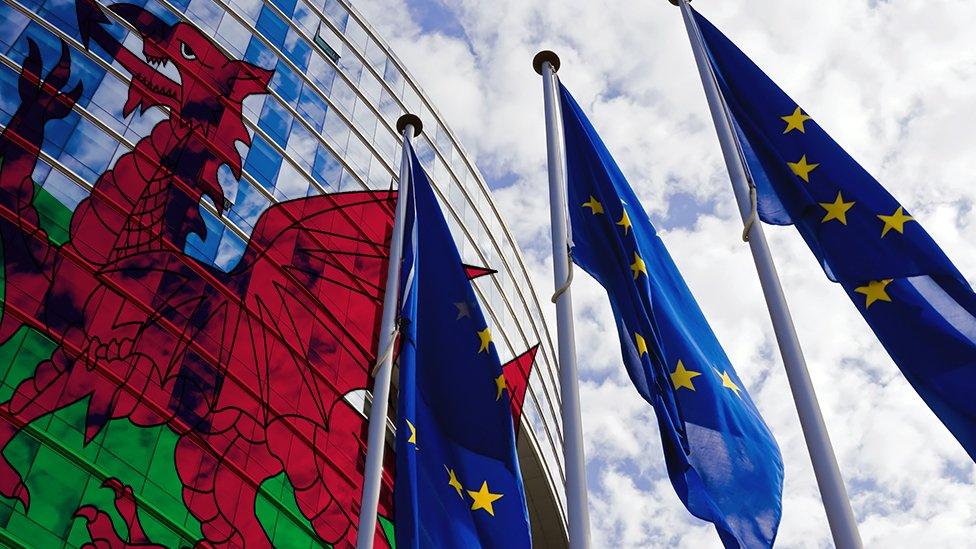
While the Welsh assembly backed the Brexit Bill, the Scottish Parliament did not
A majority of Welsh assembly members have given their consent to a controversial Brexit bill.
It follows the UK and Welsh governments reaching agreement on changes to the EU Withdrawal Bill after months of talks.
Labour, Welsh Conservative and UKIP AMs supported the Welsh Government's position in a heated debate on Tuesday, while Plaid Cymru opposed the move.
It comes as a majority of members of Scotland's parliament voted against the legislation.
A total of 46 assembly members voted to give their consent to the parts of the bill that impact the assembly's powers.
Nine AMs voted against.
Welsh and Scottish ministers were working together against the bill before the deal - and the Scottish government remains opposed.
Ahead of the vote, UK and Welsh government sources defended their agreement and attacked the Scottish government's opposition to it as "a nonsense".
The Scottish government says it has "been entirely consistent in public and in private".
Mark Drakeford says the Brexit bill deal is right for Wales
Finance Secretary Mark Drakeford - who has led Welsh negotiations on the bill - told AMs: "We have defended and entrenched our devolution settlement. We have provided for the successful operation of the UK after Brexit.
"We have provided a good deal for the Assembly and a good deal for Wales."
Welsh Conservative AM David Melding said ministers had secured "an important and constitutionally significant concession" from the UK government.
There was also praise from UKIP Wales leader Neil Hamilton, who said the Welsh Government had played "an extremely good hand in the course of the negotiations".
But Plaid Cymru AMs were vocal in their opposition. The party maintains that the bill remained a power-grab.
"Tonight we'll see a Labour government vote with the Tories and UKIP to support Westminster's EU Withdrawal Bill," said Plaid Cymru leader Leanne Wood.
Plaid AM Adam Price said: "We are joining a very select club of national Parliaments, if we pass this motion today, that have voluntarily decided to cede their own authority."
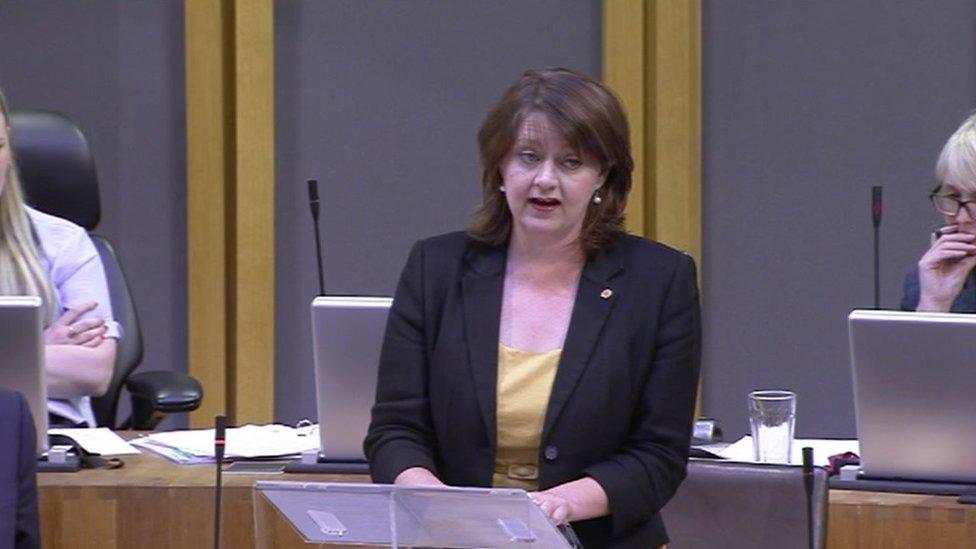
Leanne Wood said the bill is designed to take powers back to Westminster's control
The Welsh and Scottish first ministers had both called the UK government's original plans for the bill a "power-grab" as it would have meant powers in devolved areas such as food labelling - currently operated by the EU in Brussels - would transfer directly to Westminster rather than to the devolved administrations post Brexit.
In February, the UK government said it had made a "considerable" offer, which would see the vast majority of those powers returning to Cardiff, Edinburgh and Belfast while the rest temporarily stayed in London.
Although Welsh ministers said at the time the offer did not go far enough, following further discussions they reached agreement with the UK government in April on a different proposal, external.
It means consent of the devolved legislatures will be sought for any changes to the powers held in Westminster, but if talks become deadlocked, UK Parliament will have the final say.
It also stipulates the powers will be held in Westminster for up to seven years after the UK has left the EU on 29 March 2019.
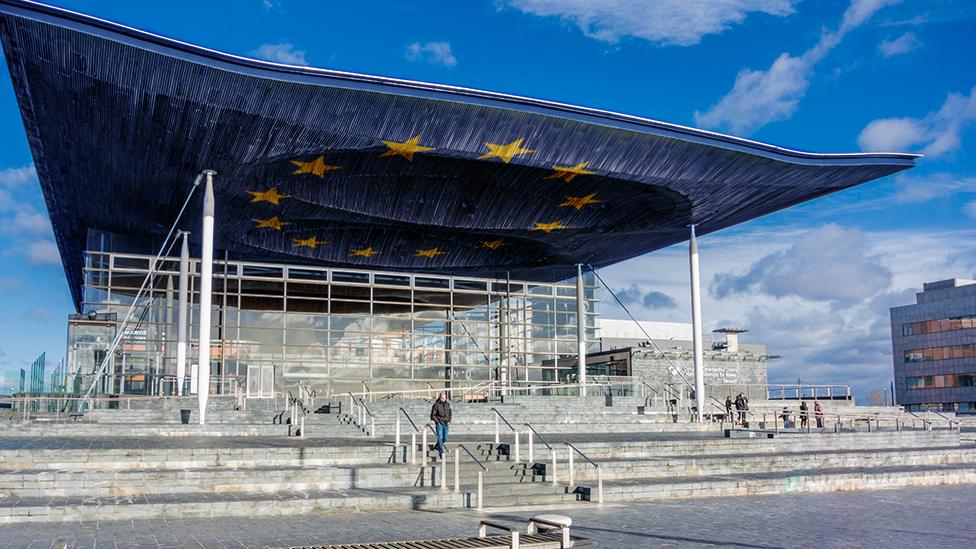
Labour, UKIP and Conservative AMs supported the Brexit bill, while Plaid Cymru voted against it
A source close to the negotiations said: "It's incredible that the Scottish government are now giving the impression that there was never any prospect of them signing up to a deal of this sort and that it's a constitutional outrage."
They added that "a few weeks before the agreement, two options were on the table" and that the Scottish government preferred the option UK and Welsh government ministers eventually agreed upon.
"So the Scots walked away from the option they supposedly preferred," the source added.
'Problematic'
On that point, a Scottish government source said: "We were open to both, but I think the fundamental point that we've made ever since this bill was published is the issue of consent, that the Scottish Parliament has to agree.
"The mechanism for us is not really the issue, it's the issue of the consent of the parliament.
"The amendments themselves are extremely problematic because of the definition of a consent decision, which effectively means that if the Scottish Parliament votes to refuse consent, the UK government can in effect take that as a 'green light' to act anyway," the source added.
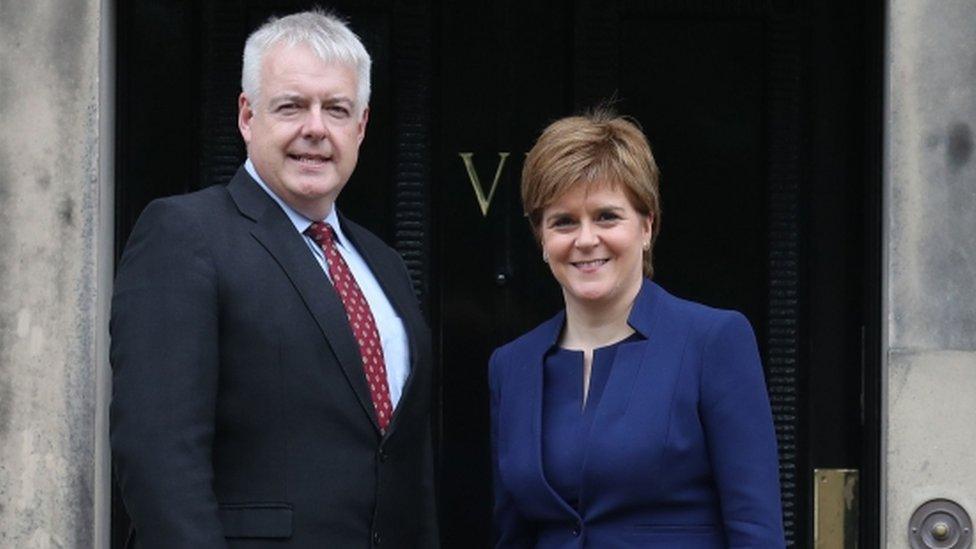
Carwyn Jones and Nicola Sturgeon had initially worked together against the Brexit legislation
In an article in the Sunday Herald newspaper, external following the Scottish government's rejection of the deal, Scottish First Minister Nicola Sturgeon said: "If our principled stance means the SNP are the only or the last party standing, defending the founding principles of devolution, then so be it."
A source said: "It's a nonsense to pretend that the Scottish position is defending devolution.
"By insisting the Scottish Parliament should have an absolute veto on matters which have serious implications for the whole UK, they are attacking the whole basis on which devolution is built."
It is convention that AMs in Cardiff, and MSPs in Scotland, vote to give or refuse consent on Westminster legislation when it impacts devolution.
The motion for Welsh Assembly members to give their consent to the Brexit bill came on the same day most Scottish Parliament members accepted the Scottish government's recommendation to refuse it.
Labour MSPs joined the SNP and the Greens in opposing the bill.
Ahead of the debate, a report from the assembly's external affairs committee said its six objectives for improving the bill had still not been met in full, despite the progress made.
Its Labour chair David Rees AM said: "We remain particularly concerned that the assembly's ability to pass laws in devolved policy areas such agriculture could be constrained by the UK Parliament, even in circumstances where the assembly has refused consent for such constraints to be imposed."
- Published15 May 2018
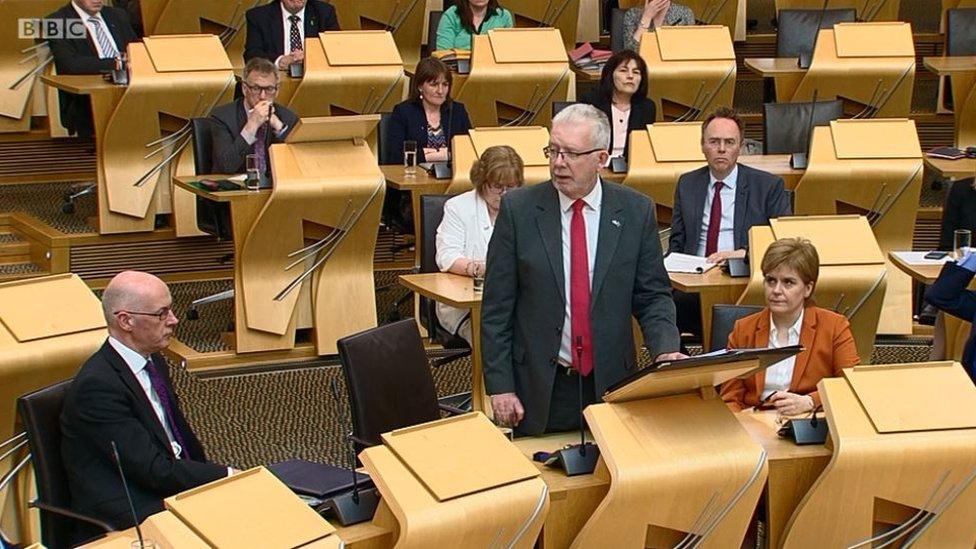
- Published24 April 2018

- Published14 May 2018
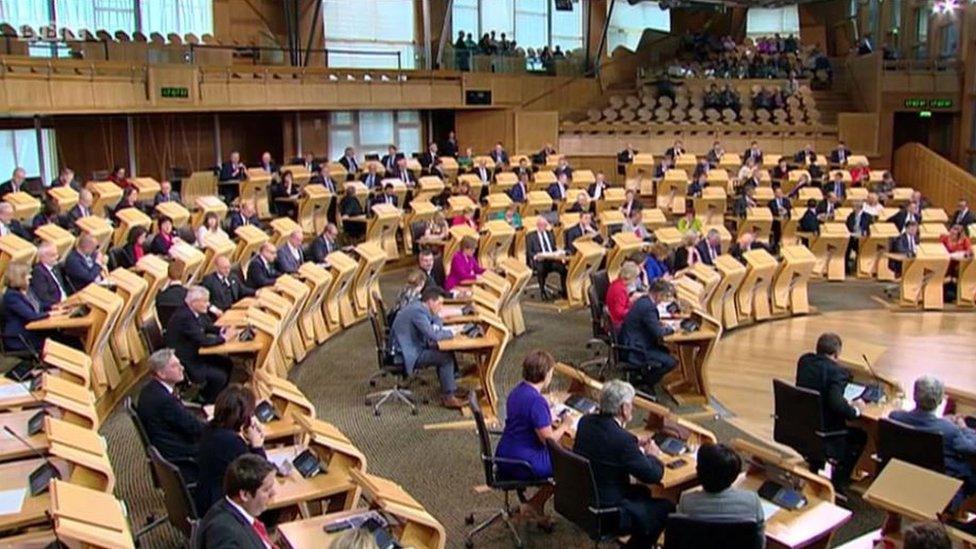
- Published11 May 2018
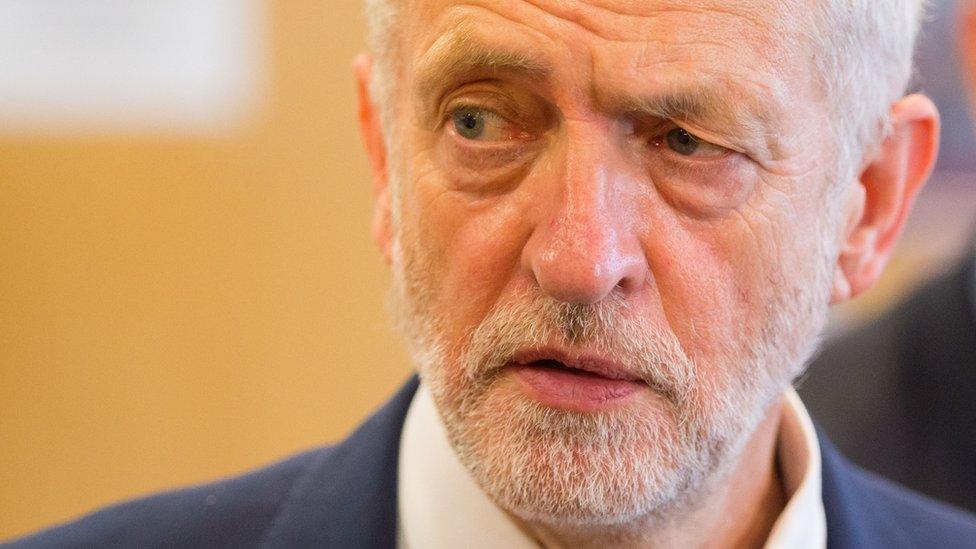
- Published17 April 2018
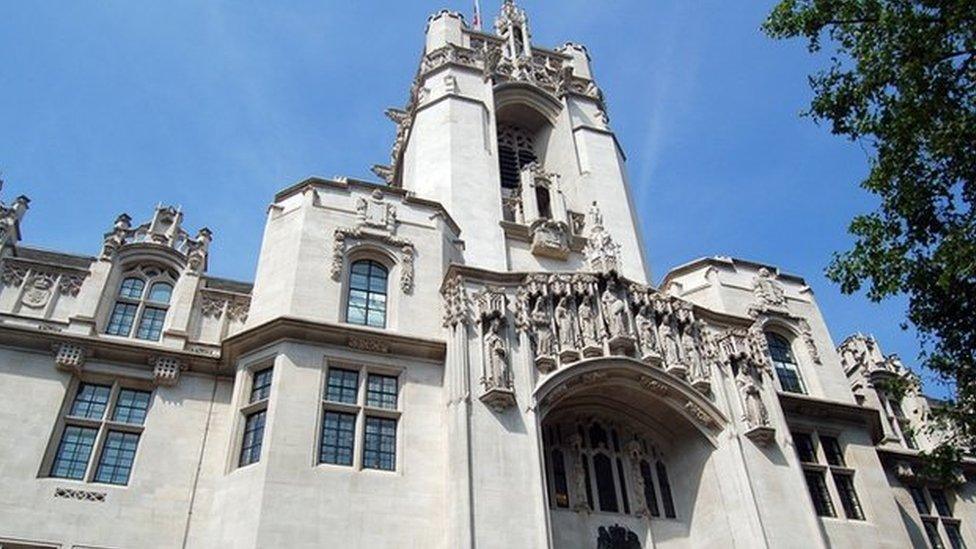
- Published30 December 2020
